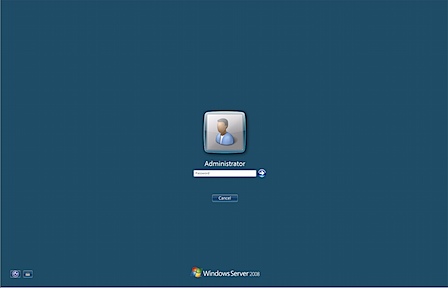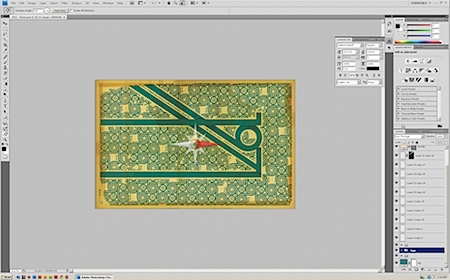
 This is mostly an addendum to last week’s Vista 64 post. As Tide pointed out in the comments of that post, there is technically another flavor of Windows Vista called Windows Server 2008. As the name implies, it’s intended to run as a server OS, but underneath the hood it’s essentially Windows Vista minus all the bloat and the few minor annoyances. I guess Microsoft figured sysadmins and hosting providers wouldn’t be willing to deal with all the extra resource-hogging features that are tacked on to Vista by default, so they stripped it down to it’s core, added some cool features like a built in web server and virtualization (which are disabled by default), and branded it as Server 2008. This means no Security Center, no User Account Control (UAC), no Windows Update running automatically, and none of the other preloaded Vista features that prevent the OS from being a serious development machine. This is probably what lead many tech writers to refer to Server 2008 as “Vista done right”. With a very basic understanding of Windows services or a good ability to follow directions, you can convert this hot-rodded version of Vista into a fully functional graphics, video, or audio workstation. Most of the benchmarks I’ve seen show Server 2008 coming in around 10-15% faster across the board than Vista. All this was very intriguing to me as I usually spend a good hour or two after a Vista install just disabling services and features I don’t need in order to slim it down. The idea of a pre-slimmed vista was something I really had to try out.
This is mostly an addendum to last week’s Vista 64 post. As Tide pointed out in the comments of that post, there is technically another flavor of Windows Vista called Windows Server 2008. As the name implies, it’s intended to run as a server OS, but underneath the hood it’s essentially Windows Vista minus all the bloat and the few minor annoyances. I guess Microsoft figured sysadmins and hosting providers wouldn’t be willing to deal with all the extra resource-hogging features that are tacked on to Vista by default, so they stripped it down to it’s core, added some cool features like a built in web server and virtualization (which are disabled by default), and branded it as Server 2008. This means no Security Center, no User Account Control (UAC), no Windows Update running automatically, and none of the other preloaded Vista features that prevent the OS from being a serious development machine. This is probably what lead many tech writers to refer to Server 2008 as “Vista done right”. With a very basic understanding of Windows services or a good ability to follow directions, you can convert this hot-rodded version of Vista into a fully functional graphics, video, or audio workstation. Most of the benchmarks I’ve seen show Server 2008 coming in around 10-15% faster across the board than Vista. All this was very intriguing to me as I usually spend a good hour or two after a Vista install just disabling services and features I don’t need in order to slim it down. The idea of a pre-slimmed vista was something I really had to try out.
I set out to get Server 2008 running on my main development tower around noon and in well under 2 hours I was up with CS4 and Sonar 8 installed. I am running the 64-bit variety of this OS just as I was in Vista so all of the 64-bit advantages remain (seeing more RAM, more efficient CPU usage, etc.). The install was just like Vista, very simple and rather quick. On first boot up, the OS comes so stripped down that audio isn’t even enabled by default, it’s literally bare bones. You can then go through and enable only the services you need, keeping the running processes to a minimum. And if you don’t have a good grasp of Services or registry editing, there’s even a tool to help you convert a fresh Server 2008 install into a workstation via a simple GUI here. It took about 1 minute (literally) to enable what I needed with the app. Installing drivers is a snap just like in Vista, if you’re running the 64-bit version of the OS you just have to make sure the manufacturer of your hardware offers a 64-bit driver for it. Now that 64-bit is becoming mainstream, there are very few devices out there that don’t have 64-bit support. If you want to keep your Vista or XP install intact, creating a dual-boot system is very easy using tools like EasyBCD.
Working on the machine has been very smooth and stable, I’ve put it through it’s paces in most of the major apps from CS4 as well as Cakewalk Sonar 8 with various VST plugins. The few minor issues I had with Vista are now gone (namely the sporadically slow file copy/move behavior caused by the DRM apparently present in Vista but thankfully missing from Server 2008) and I have yet to encounter any sort of crash or application failure. Photoshop CS4 64-bit runs incredibly well, I have seen a marked performance increase in all operations, it just seems more efficient and definitely more powerful. Disk read/write speeds seem to have increased as well, boosting swap disk performance for Photoshop. Overall it’s been a surprisingly pleasant experience. My only regret is that I didn’t try this earlier while languishing in XP for so long. Although I am assuming this OS, as with it’s counterpart Vista, only recently came of age with the release of Service Pack 1 (SP1) for both.
Overall, I highly recommend this OS as a svelte and stable alternative to the already solid Vista. It excels for multimedia tasks and for working professionals it’s trimmed down resource weight will maximize your system’s performance. If you’ve ever installed Windows before, you’ll have no problem getting Server 2008 up and running. If you’re a web developer this seems like a must have OS, it’s the perfect environment for testing server technologies like PHP with your Flash sites. The only caveat to all of this is the price: It’s a whopping $999 for a license. Fortunately, Microsoft offers a generous evaluation period.
Windows Server 2008 Workstation Resources:
Download Windows Server 2008 From Microsoft
Windows Server 2008 Workstation Guide (or a PDF manual here)
Windows Server 2008 Workstation auto-config tool
Has anyone else been using Server 2008 for design or music? What has your experience been?



i see, you’ve set it up. now, this is where the fun starts 🙂 a very good OS. and as you have already said, server 2008 is the vista how it should to be.
btw: you can deactivate the password-service completely. means: no password confiration. and no password-change reminder in form of a balloon-tip.
cheers
I’ve found the new rotate canvas feature useful =)
This sounds good. Any one know if games work okay on Windows 2008?
@highly:
yeah, games are working very well. one exception was UT3, it cannot recognize the os. but there’s a workaround for that.
It’s great to hear that Server 2008 is 10-15% faster than its brethren, Vista. It appears that the only major downside is the hefty price tag.
After reading your Vista 64 post I was certainly tempted to go and build my own PC and switch from Mac to PC. Having a Mac Pro performance for half the price is certainly appealing. My only uncertainly was the OS. Now Server 08 is thrown into the mix, I feel like this may be a good time to jump in and enjoy the 64bit Adobe suite.
I just love that grey look of windows. Is so much more appealing to me than the ‘glass’ look of vista.
– Was running OSX on your laptop stable enough for serious use?
Now this is a very interesting idea. I wonder, how well Windows Server 2008 runs on slightly older hardware, that is too slow for the full Windows Vista experience. Because if it runs at about the same speed as XP, it would be a perfect replacement.
Great to here it’s faster, and less bloated! After reading your Vista x64 post i made the switch over from xp sp3 last night lol. And now i am reading this and its sounding better again. Have always been very dubious about Vista because like yourself, it was abit of a horror story the first few times, though i see a big improvement with 64-bit and SP1.
The auto config tool to enable certain services also looks very promising and easy to use.
Might have to check out.
Great post Scott
I’ve never heard of this. Very interesting, thanks for sharing. I’m gonna go check it out.
It’s the same install size as Vista, but again none of the bloat, and it’s fast! I’m running it from a IDE Firewire drive using Sun’s Virtual Box by the way. I’m really impressed, it even runs faster than Win XP SP3 with the same setup.
It’s really ironic that one has to pay $1000 for taking off features and add a few extras that are disabled or limited in Vista. Especially User Annoy Control.
Nothing will take me away from my Leopard OS! So quick and reliable…and have had no problems whatsoever. There is no turning back now baby!
the default font in Windows Server 2008 is fucking atrocious
Sorry to double post, @Scott and Tide, What security do you guys recommend for 64-bit vista? Antivirus Firewall?
kristian-
not quite sure what you’re asking… if you mean when I had OS X running on my HP DV-9000 , then yes, it was very stable. in fact, it was the laptop I used to run video and sound at all my shows. now that I have the macbook pro, it is stable, but seems to crash more often than the hp (which almost never did). But that may because I use this new macbook for my day to day stuff as well/ the hp just sat in a flight case when I wasn’t on the road.
option-
I don’t think you’ll hear many people argue that windows is a better designed OS than OS X, but I do agree with kristian, windows’ reserved gui is a little more unobtrusive than the constant barrage of gel and liquid found in OS X.
rory-
I don’t run any security on my main development machine. I have an XP media center upstairs that I run NOD32 on. I just run everything through that machine before I let it touch the main computer. So I can’t say how well NOD32 runs on server 08, but I know it runs great on XP and vista so I would assume it worked well on server. The problem with A/V and security softs is that they are almost always very bloated and resource hogs. NOD32 is one of the lightest and most powerful though.
I find Avast a very neat, ligthweight antivirus protection for my machines. Might be a good (free) alternative to NOD32.
Mikael-
while Avast is a bit cheaper, it’s definitely not on par with NOD32. NOD32 and Kaspersky consistently rank highest in virus protection/detection. NOD32 is definitely lightweight but I can’t speak for Kaspersky as I’ve never tried it.
is it the good on 32bits machine?
coz i dont have a x64 one, so im on xp,
do u think this will work good for me?
Thanks…Very good info, I feel a lot more people need to read this.